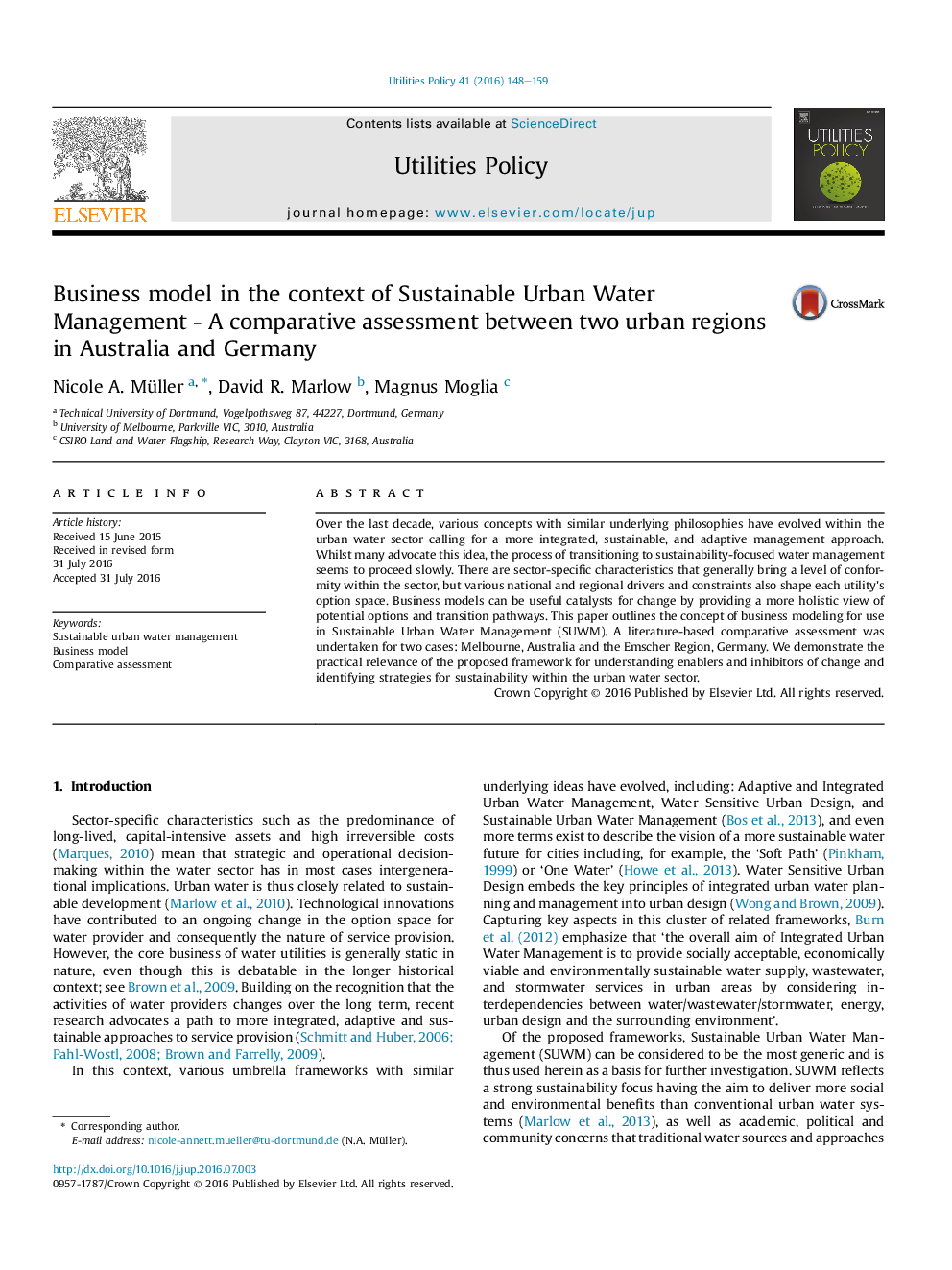| Article ID | Journal | Published Year | Pages | File Type |
|---|---|---|---|---|
| 5106870 | Utilities Policy | 2016 | 12 Pages |
Abstract
Over the last decade, various concepts with similar underlying philosophies have evolved within the urban water sector calling for a more integrated, sustainable, and adaptive management approach. Whilst many advocate this idea, the process of transitioning to sustainability-focused water management seems to proceed slowly. There are sector-specific characteristics that generally bring a level of conformity within the sector, but various national and regional drivers and constraints also shape each utility's option space. Business models can be useful catalysts for change by providing a more holistic view of potential options and transition pathways. This paper outlines the concept of business modeling for use in Sustainable Urban Water Management (SUWM). A literature-based comparative assessment was undertaken for two cases: Melbourne, Australia and the Emscher Region, Germany. The practical relevance of the proposed framework is demonstrated for understanding enablers and inhibitors of change and identifying strategies for sustainability within the urban water sector.
Related Topics
Physical Sciences and Engineering
Energy
Energy (General)
Authors
Nicole A. Müller, David R. Marlow, Magnus Moglia,
